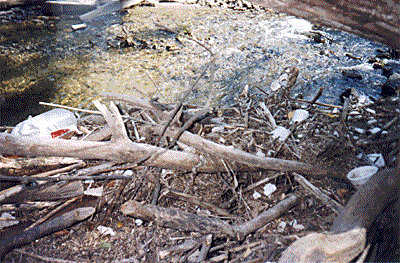All Nonfiction
- Bullying
- Books
- Academic
- Author Interviews
- Celebrity interviews
- College Articles
- College Essays
- Educator of the Year
- Heroes
- Interviews
- Memoir
- Personal Experience
- Sports
- Travel & Culture
All Opinions
- Bullying
- Current Events / Politics
- Discrimination
- Drugs / Alcohol / Smoking
- Entertainment / Celebrities
- Environment
- Love / Relationships
- Movies / Music / TV
- Pop Culture / Trends
- School / College
- Social Issues / Civics
- Spirituality / Religion
- Sports / Hobbies
All Hot Topics
- Bullying
- Community Service
- Environment
- Health
- Letters to the Editor
- Pride & Prejudice
- What Matters
- Back
Summer Guide
- Program Links
- Program Reviews
- Back
College Guide
- College Links
- College Reviews
- College Essays
- College Articles
- Back
Choices
Choices. Everyday we make choices that impact our lives. Yet, there are times when those decisions can affect others - even in a negative way.
It was a bright, sunny day and my parents decided to take advantage of it by going for a walk in the park. There were a lot of people; all were laughing and chatting whilst happily skipping down the path. My parents and brother were deep in conversation too, yet I was busy observing everything around me to pay any attention to what they were saying. Tall trees towered on each side of the path, their emerald color glistening under the sun. Dogs of all breeds could be spotted around and birds were constantly chirping. Suddenly time slowed down; I noticed a tall guy walking in front of us. He was holding a food wrapper in his hand. After crumpling it into the shape of a ball, he roughly threw it to the side where it got lost among the grass and flowers and kept on walking as if nothing had happened. There was a trash can at the end of the path.
Laziness and carelessness have created a culture of continuous littering. Carelessness has made people throw rubbish anywhere they deem appropriate, without thinking of the outcomes that this action brings. Many are either not aware of the negative impacts of littering or they choose to overlook the consequences, believing that their individual actions will not harm society as a whole. However, the simple act of littering is of grave importance.
Food wrappers are seen as a source to feed on and, thus, are frequently consumed by animals. This, in turn, leads to the animals becoming poisoned by the chemicals within the wastes. Furthermore, many animals mistake plastic litter for food and ingest it. However, they are unable to digest the material and end up clogging their digestive tracts, which leads to them suffering slow and painful deaths. Plastics can also entangle animals’ limbs and either severely injure them and their vital organs or kill them because of asphyxiation. About 7 billion tons of debris ends up in the world’s oceans every year and much of marine wildlife have been found dead with plastic and cigarettes in their stomachs. An estimated 100,000 sea mammals have been killed annually by plastic litter ("Reasons, Consequences and Possible Solutions of Littering”).
Litter greatly reduces air quality due to the chemical vapor emitted from the trash. Because it contains many germs and bacteria, litter also becomes a cause for diseases to outbreak. Disease-causing microorganisms that are found in trash can contaminate water systems and spread water-borne diseases, such as cholera or typhoid, which can lead to poor public health ("Reasons, Consequences and Possible Solutions of Littering”). Litter can also disrupt waterways. When trash is dumped inappropriately, it follows the stream of water after heavy rains and can end up in sewer channels or drainage pipes. The litter then blocks the water passages or drainage pipes which causes the pipes to burst. Most of the time, this leads to flooding or a free flow of raw sewage. In the end, this also creates the risk of an outbreak and spread of harmful diseases ("Effects of Littering on Humans, Animals and the Environment").
Additionally, litter, such as cigarette butts, plastic or paper, is very flammable and can easily start a fire and spread it to the rest of the area. After a long time, the litter can lead to contaminants, such as heavy metals, ending up in the soil and damaging it. On the other hand, in aquatic environments, pollutants from littering can change the temperature and PH balance of the water and, in turn, have a negative impact on the organisms found there. Nature is beautiful, yet the presence of trash can easily ruin the aesthetic and real value of the environment.
Littering only brings harm and the best way to stop this problem is for everyone to take responsibility for themselves and to try their best to properly dispose waste. It is the choices we make today that impact the world for the better or the worse. That is why it is important that we become more conscious of the decisions that we make and of the effects that they have. It is time to start making smarter choices that will help save Earth.

Similar Articles
JOIN THE DISCUSSION
This article has 0 comments.
